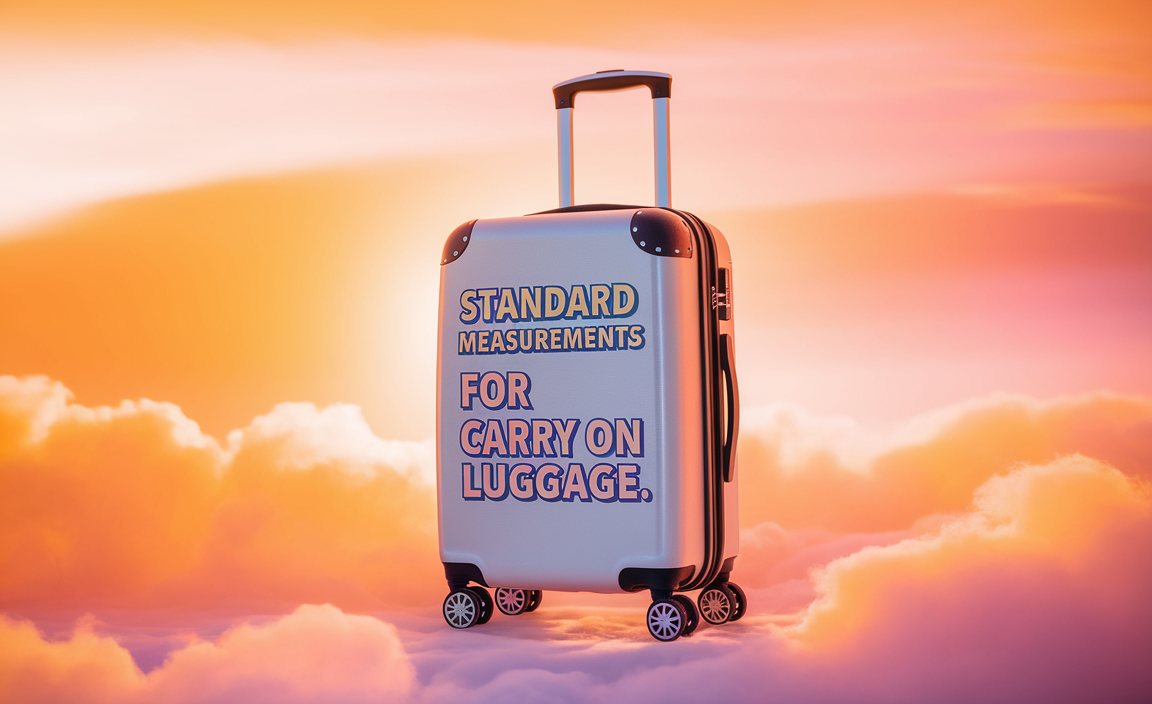Brazil Quick Summary: Embrace a warm “obrigado/obrigada” for good service, and understand tipping is often a service charge rather than expected. Generally, a small tip is appreciated for exceptional service, especially in tourist areas, but not usually mandatory elsewhere. Always be polite, use basic Portuguese greetings, and be aware of personal space.
Planning a trip to Brazil? Wonderful! It’s a vibrant country filled with incredible sights and sounds. But while you’re getting excited about beaches, rainforests, and samba, you might be wondering about the local customs. Navigating etiquette and tipping can feel a bit tricky, especially in a new place.
You want to be respectful and avoid any embarrassing slip-ups, right? Don’t worry, it’s simpler than you think! We’re here to break down Brazil’s local etiquette and tipping essentials so you can travel with confidence and comfort. Let’s make sure your journey is as smooth as a samba rhythm!
Understanding Brazilian Greetings and Politeness
When you first arrive in Brazil, a friendly greeting can go a long way. Brazilians are known for being warm and sociable, and this often starts with how they greet each other. Understanding these simple gestures will help you connect more easily with locals and make a great first impression.
Verbal Greetings
The most common way to say hello is “Olá” (hello) or “Oi” (hi). When meeting someone for the first time, or in more formal settings, “Bom dia” (good morning), “Boa tarde” (good afternoon), or “Boa noite” (good evening/night) are appropriate. If you’re leaving, “Tchau” (bye) is casual, while “Até logo” (see you soon) or “Adeus” (goodbye, more formal) can also be used.
Learning a few basic Portuguese phrases will be incredibly helpful and appreciated by locals. Even a simple “Obrigado” (thank you – if you are male) or “Obrigada” (thank you – if you are female) shows respect. For example:
- Olá – Hello
- Oi – Hi
- Bom dia – Good morning
- Boa tarde – Good afternoon
- Boa noite – Good evening/night
- Por favor – Please
- Com licença – Excuse me (to pass or interrupt)
- Desculpe – Sorry
- Obrigado/Obrigada – Thank you
- De nada – You’re welcome
Physical Greetings
Physical contact is common in Brazilian greetings. When meeting someone, especially in social settings, men typically shake hands. Women often greet each other and men with a kiss on each cheek (usually one to three, depending on the region and how well they know each other). As a traveler, offering a handshake to men and a friendly “Olá” with a smile to women is perfectly acceptable and often preferred if you’re unsure of the local custom. Don’t be surprised if friends or acquaintances hug or place a hand on their shoulder or arm during conversation – it’s a sign of warmth and connection.
Personal Space
Brazilians tend to stand closer when talking than many people from North America or Northern Europe. This is normal and not an indication of aggression or over-familiarity. Just relax and go with the flow; if you feel someone is too close, try not to react visibly, as it might be misinterpreted.
Navigating Dining Etiquette in Brazil
Food is a huge part of Brazilian culture, and sharing a meal is a social event. Understanding dining etiquette will enhance your experience and show respect for local traditions. These tips are designed to be easy to follow, ensuring you enjoy your culinary adventures without worry.
Table Manners
In most situations, it’s polite to wait for your host or the eldest person at the table to begin eating before you do. Keep your hands visible while eating; it’s customary to rest your wrists on the edge of the table, not in your lap. Both hands should be used to hold utensils; elbows on the table are generally frowned upon, but resting your wrists is fine.
Asking for the Bill
When you’re ready to pay, you’ll typically signal the waiter by making eye contact and raising your hand slightly. In restaurants, the bill is usually brought to your table. If you’re dining in a more casual setting or a churrascaria (Brazilian steakhouse), the payment process might differ slightly. For churrascarias, you might have a card that you place on the table, flipping it to green for service and red when you’re finished. Don’t be afraid to ask your server for clarification if you’re unsure.
Sharing Food
Brazilians often enjoy sharing dishes, especially appetizers. If you’re with a group, it’s common to order a few items to share. When eating from communal dishes, use the serving utensils provided, not your own fork or spoon. Take a reasonable portion and don’t overcrowd your plate from shared items. This approach fosters a sense of togetherness and is a delightful way to sample a variety of flavors.
Punctuality
While punctuality is valued in business settings, for social gatherings, Brazilians often operate on a more relaxed schedule often referred to as “hora brasileira” (Brazilian time). Arriving 15-30 minutes after the scheduled time for a dinner party or casual get-together is generally acceptable and even expected. However, for formal events or appointments, it’s best to arrive on time.
Tipping Culture in Brazil: What You Need to Know
Tipping in Brazil can be a bit of a grey area for visitors, but understanding the common practices will help you navigate it smoothly. Unlike in some countries where tipping is a significant part of a service worker’s income, Brazil’s system often incorporates service charges differently. Here’s a breakdown to help you tip with confidence.
The “Taxa de Serviço” (Service Charge)
The most crucial thing to know is that in most restaurants, bars, and even some hotels, a 10% service charge (taxa de serviço) is automatically added to your bill. This is usually clearly stated on the menu or the bill itself. This charge is essentially a tip, and it’s distributed among the staff. You are not obligated to pay an additional tip on top of this if you are satisfied with the service.
You can usually find information about this on the menu or receipt. For example, a typical restaurant bill might have a line item like:
| Item | Cost (R$) |
|---|---|
| Feijoada Completa | 55.00 |
| 10% Taxa de Serviço | 5.50 |
| Total | 60.50 |
When to Tip Extra
While the 10% service charge is standard, you can choose to leave a little extra if the service was truly exceptional. This is entirely voluntary. If you experienced outstanding service, you might round up the bill or leave an additional few Reais (the Brazilian currency). This is more common in tourist-heavy areas where service staff may be accustomed to it.
Tipping in Hotels
In hotels, tipping practices can vary. Porters (bellhops) usually expect a small tip for handling your luggage, perhaps R$2-5 per bag. Housekeeping staff can also be tipped, typically R$5-10 per day left discreetly in the room. For concierges, a tip is generally given only if they provide significant assistance, like securing hard-to-get reservations or arranging complex tours.
Tipping for Other Services
- Taxis: Tipping is not customary for taxi drivers. You can round up the fare if you wish, especially if the driver was helpful with luggage.
- Tour Guides: For tour guides, especially for full-day or private tours, a tip of R$20-50 (or a percentage of the tour cost) is appreciated for excellent service.
- Hairdressers/Barbers: A tip of around 10% is appreciated for good service.
- Delivery Drivers: If ordering food or other items for delivery, a small tip is customary for good service.
Important Note on Cash vs. Card
If you decide to tip extra, it’s usually best to do so in cash. While some establishments might allow you to add a tip to your card payment, smaller cash tips are often preferred and more direct. Keep some smaller Reais bills handy for these occasions.
General Etiquette and Social Norms in Brazil
Beyond greetings and dining, there are other social norms that can enhance your travel experience in Brazil. Understanding these will help you feel more at ease and interact more comfortably with the people you meet.
Dress Code
Brazil has a diverse climate and culture, so dress codes can vary. In major cities like Rio de Janeiro or São Paulo, especially in more affluent neighborhoods or during the summer, casual and beachwear is very common. However, for dining in nicer restaurants, visiting churches, or attending business meetings, it’s advisable to dress more smartly.
In general, aim for neat, clean attire. Comfort is key, especially in the heat, so breathable fabrics are your friend. For women, comfortable walking shoes are a must, and packing a versatile sarong or scarf can be useful for more modest occasions or as a beach cover-up. For men, smart shorts with a polo shirt can work for many casual outings, but long pants and a button-down shirt are better for evenings or more upscale settings.
The “Jeitinho Brasileiro”
You might hear about the “jeitinho brasileiro,” which translates to “the Brazilian way” or “the Brazilian knack.” It refers to a uniquely Brazilian way of finding solutions to everyday problems, often through improvisation, charm, or by bending the rules slightly. While it can be a positive trait showcasing resourcefulness, as a traveler, it’s best to act with integrity and follow official procedures. Understanding it, however, can help you make sense of some social interactions.
Gift-Giving
If you are invited to someone’s home, it’s a nice gesture to bring a small gift. Good options include chocolates, a bottle of wine, or a small souvenir from your home country. Avoid giving gifts that are too expensive, as this can make the host uncomfortable. It’s also generally advised to avoid giving perfume, as personal preferences can vary widely. Gifts are usually opened upon receipt.
Personal Safety and Awareness
While the people are warm, it’s important to be aware of your surroundings, especially in larger cities. Like many countries, Brazil has issues with petty crime.
- Keep valuables secure: Don’t flaunt expensive jewelry or gadgets.
- Be mindful of your bags: Especially in crowded areas.
- Avoid walking alone at night in unfamiliar areas.
- Use reputable transportation: Stick to official taxis or ride-sharing apps.
For added peace of mind, especially on longer journeys or if you require extra security and discretion, carrying personal necessities like adult diapers or child diapers can significantly reduce stress. Brands like Depend or TENA offer discreet options that provide comfort and confidence, allowing you to focus on enjoying your travels without unnecessary worry. Many travelers find that having these essentials readily available alleviates anxiety, particularly on airplanes or during long bus rides.
Understanding Queues
Brazilians can be quite animated in queues, and sometimes it may seem like people are cutting in. However, often there are different lines for different services or specific arrangements at certain establishments. If you’re unsure, it’s always best to politely ask someone, “Fila para X?” (Queue for X?).
Essential Portuguese Phrases for Travelers
While many Brazilians in tourist areas speak some English, knowing a few basic Portuguese phrases can significantly enhance your experience and demonstrate respect for the local culture. These phrases are easy to learn and will be greatly appreciated.
Greetings and Basic Courtesies
- Oi / Olá – Hi / Hello
- Bom dia / Boa tarde / Boa noite – Good morning / Good afternoon / Good evening
- Por favor – Please
- Obrigado / Obrigada – Thank you (male/female speaker)
- De nada – You’re welcome
- Com licença – Excuse me (to pass or get attention)
- Desculpe – Sorry
- Quanto custa? – How much does it cost?
- Eu não entendo – I don’t understand
- Você fala inglês? – Do you speak English?
Getting Around
- Onde é…? – Where is…?
- Onde fica o banheiro? – Where is the bathroom?
- Um bilhete para [destination], por favor. – One ticket to [destination], please.
- Pare aqui, por favor. – Stop here, please.
At Restaurants and Bars
- Eu gostaria de… – I would like…
- A conta, por favor. – The bill, please.
- Um café, por favor. – A coffee, please.
- Água sem gás / com gás – Still water / Sparkling water
Numbers (1-10)
- Um – One
- Dois – Two
- Três – Three
- Quatro – Four
- Cinco – Five
- Seis – Six
- Sete – Seven
- Oito – Eight
- Nove – Nine
- Dez – Ten
Practicing these phrases will not only help you communicate but also give you a deeper appreciation for Brazil’s rich linguistic heritage. You can find more detailed phraseology and pronunciation guides on resources like the U.S. Department of State’s Brazil country page, which often includes cultural and linguistic tips for travelers under their travel advisory sections.
Conclusion
Traveling is an adventure, and understanding local etiquette and tipping customs is a key part of enjoying it to the fullest. Brazil is a country that welcomes visitors with open arms, and by embracing a few simple customs—like polite greetings, mindful dining manners, and understanding the nuances of tipping—you’ll find your journey even more rewarding. Remember that a little effort to speak Portuguese and show respect for local ways goes a long way.
FAQs
Q1: Is it considered rude not to tip in Brazil?
No, it’s not generally considered rude not to tip if the service charge is already included. In most restaurants, a 10% service charge is automatically added. If it is, an additional tip is not expected, though it’s appreciated for exceptional service. If no service charge is added, a tip of around 10% is customary.
Q2: Do I need to tip taxi drivers in Brazil?
Tipping taxi drivers is not a standard practice in Brazil. You can round up the fare to the nearest Real if you wish, especially if the driver provided good service or helped with luggage, but it’s not mandatory.
Q3: How do I say “thank you” in Portuguese?
If you are male, you say “Obrigado.” If you are female, you say “Obrigada.” Use this whenever you want to express gratitude, from receiving your change to a helpful gesture from a local.
Q4: Is it okay to wear beachwear in city centers?
While beachwear is perfectly acceptable on the beach and sometimes in very casual beachside areas, it’s generally not appropriate for dining in restaurants, visiting shops in city centers, or attending cultural sites. It’s best to change into more casual, modest clothing for these occasions.
Q5: Should I tip housekeeping staff at hotels?
Tipping housekeeping staff is a nice gesture, though not strictly required everywhere. Leaving R$5-10 (about $1-2 USD) per day in an envelope on your pillow or desk is a common way to show appreciation for their service.
Q6: Are Brazilians sensitive about personal space?
Brazilians tend to be more physically expressive and stand closer during conversations than people from some other cultures. This is normal and a sign of warmth. It’s best not to be taken aback and to allow for this closer proximity.
Q7: Can I get by only speaking English in Brazil?
In major tourist destinations and larger cities, you’ll find many people who speak some English, especially in hotels, upscale restaurants, and tourist attractions. However, venturing outside these areas or trying to navigate local markets or public transport will be significantly easier and more enjoyable if you know a few basic Portuguese phrases.





